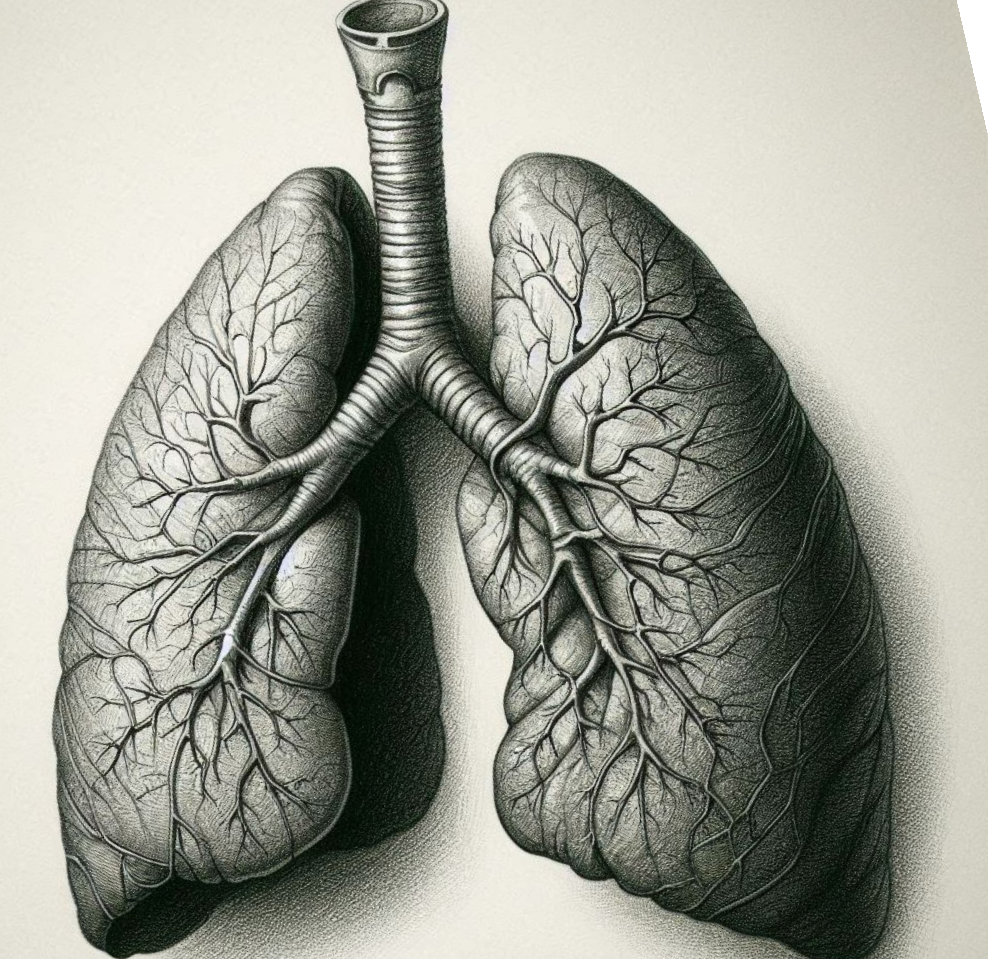The recent case of David Finegan v. Margaret McDonald [2025] NIKB 14 highlights a key challenge in personal injury claims: the difficulty of navigating conflicting expert evidence, especially when it concerns multiple heads of claim, such as psychological injuries (including Post-Traumatic Stress Disorder, or PTSD) and financial loss. The outcome of this case offers valuable insights for personal injury solicitors, insurers, and Plaintiffs, underscoring the critical role expert evidence plays in determining the outcome of such claims. This decision, handed down by Colton J, highlights the importance of assessing not only the credibility of the Plaintiff’s evidence but also the weight given to differing expert opinions on complex psychiatric and financial issues.
A significant aspect of the defence, was that the account of the Plaintiff and his injuries lacked credibility. This primarily centred around the plaintiff’s claim for psychiatric injury and loss of earnings. As such, the case sheds light on the challenges faced by the courts when evaluating psychiatric conditions, which are often subjective and difficult to prove—such as PTSD—as well as assessing financial losses, particularly where claims are speculative or based on uncertain business projections. The court’s reasoning, the weight placed on competing expert reports, and the final decision on damages provide valuable guidance for how such cases may be approached in the future.
The Accident: An Overview of the Incident
On 27 January 2019, David Finegan was involved in a road traffic accident at the junction of Millennium Way and Union Street in Lurgan. As he drove through a traffic light-controlled junction, his car was struck by a vehicle driven by Margaret McDonald. The collision was severe, and Finegan was left trapped inside his vehicle, fearing for his life. While he sustained physical injuries, it was the psychological trauma following the incident and the ensuing loss of earnings that became the primary focus of the case, resulting in a complex legal battle.
The plaintiff’s claim therefore consisted of three key elements:
- General damages for physical injuries,
- General damages for psychiatric injury and,
- Special damages for loss of earnings/opportunity.
First things First: Soft Tissue Injuries
Finegan sustained soft tissue injuries to his right wrist, knee, and lower right leg, which were initially treated by his GP. The physical aspect of the case was overshadowed by the psychological claims that emerged later. The court awarded £7,500 for the physical injuries, but the focus shifted to the psychiatric injury Finegan claimed was caused by the accident.
Expert Evidence: The Crux of the Dispute
The case largely hinged on conflicting expert opinions regarding Finegan’s psychiatric condition and financial loss. Expert evidence often plays a pivotal role in personal injury cases involving psychological harm and financial claims, and the differing opinions from the two psychiatrists and the opposing financial experts presented significant challenges for the court.
There was a fundamental disagreement between the consultant psychiatrists retained by the parties: Dr Mangan, representing the plaintiff, and Dr Chada, representing the defendant. Both experts are well-known to insurance and personal injury solicitors in Northern Ireland. The court received several detailed reports from each psychiatrist, and the initial hearing had to be adjourned to allow further reports to be prepared. The court heard from both psychiatrists on two separate occasions.
Dr. Mangan’s Reports: Support for PTSD Diagnosis
Dr. Mangan’s reports concluded that Finegan suffered from PTSD, triggered both by the accident and his previous traumatic experiences during military service. Dr. Mangan’s assessment was based on multiple consultations with Finegan and a thorough examination of his medical history, which included exposure to trauma during his military career.
Key Findings in Dr. Mangan’s Reports:
- Previous Trauma: Dr. Mangan identified Finegan’s military experiences as significant contributors to his vulnerability to PTSD.
- Symptomatology: Dr. Mangan reported that Finegan exhibited classic PTSD symptoms, such as flashbacks, hypervigilance, and avoidance behaviours, which worsened after the accident.
- Diagnosis: Dr. Mangan’s diagnosis linked the road traffic accident as a critical factor in reactivating Finegan’s latent PTSD symptoms.
Dr. Chada’s Reports: Alternative Diagnosis of Adjustment Disorder
In contrast, Dr. Chada provided a conflicting diagnosis. She acknowledged that Finegan had experienced psychological distress following the accident, but argued that his symptoms were more in line with an adjustment disorder than PTSD. Dr. Chada attributed Finegan’s psychological struggles primarily to the financial pressures he faced, which were exacerbated by the ongoing litigation.
Key Findings in Dr. Chada’s Reports:
- Absence of PTSD Symptoms: Dr. Chada contended that Finegan did not exhibit the hallmark PTSD symptoms, such as re-experiencing traumatic events or hypervigilance.
- Adjustment Disorder: She suggested that Finegan’s difficulties were more indicative of an adjustment disorder, influenced largely by his financial situation and stress related to the accident, rather than a deeply rooted psychiatric condition like PTSD.
The Court’s Handling of Conflicting Psychiatric Expert Evidence
The conflicting expert reports posed a challenge for the trial judge, who needed to determine which diagnosis was most likely to explain Finegan’s psychological state. Furthermore, the court had to weigh conflicting evidence, inconsistencies, and whether any inconsistency represented a ‘material inconsistency.’
Psychiatric Injury: Weighing the Expert Evidence in Personal Injury Claims
- Preference for Dr. Mangan’s Diagnosis: Judge Colton ultimately favoured Dr. Mangan’s opinion over Dr. Chada’s, citing the thoroughness of his assessments and the consistency of his diagnosis with other medical records. Dr. Mangan had assessed Finegan on five separate occasions, and his findings were supported by other healthcare professionals involved in Finegan’s treatment.
- Timeliness and Consistency: The court noted that Finegan had sought medical help within six months of the accident, which was consistent with the onset of PTSD. This was an important factor in confirming the link between the accident and Finegan’s psychological condition.
- Dr. Chada’s Focus: The judge noted that Dr. Chada focused excessively on inconsistencies and exaggerations in Finegan’s symptoms. While the court acknowledged that Finegan had exaggerated his symptoms in his PIP application for financial gain, it felt that Dr. Chada placed too much emphasis on the financial pressures Finegan was experiencing, which seemed to overshadow the evidence of a deeper psychological injury. While the court accepted that financial stress contributed to Finegan’s condition, it was not considered the primary cause of his PTSD.
Awards for Psychiatric Damage in Northern Ireland
Insurance and Personal Injury practitioners will appreciate that there exist Guidelines for the Assessment of General Damages in Personal Injury Claims in Northern Ireland. In cases involving psychiatric damage, the severity of the injury typically dictates the level of compensation. Key factors include the impact of the injury on daily life, work, relationships, treatment progress, and prognosis. The compensation ranges for psychiatric damage are as follows:
- Severe Psychiatric Damage:
- Significant problems across various factors with a poor prognosis.
- Compensation: £100,000 – £250,000.
- Moderately Severe Psychiatric Damage:
- Significant issues but with a more optimistic prognosis than severe damage.
- Compensation: £60,000 – £150,000.
- Moderate Psychiatric Damage:
- Issues present, but marked improvement by trial with a good prognosis.
- Compensation: £15,000 – £60,000.
- Minor Psychiatric Damage (including adjustment disorders):
- Compensation for personal injury claims based on the length of disability and impact on daily activities or sleep:
- Full recovery within 12 months: Up to £10,000.
- Full recovery within 12-24 months: Up to £20,000.
- Minor effects: Up to £20,000.
Appropriate Diagnosis and Assessment of General Damages for Personal Injury Claims involving Psychiatric Injury
The judge emphasised that, while the diagnosis is important, the more significant factor in assessing damages in personal injury claims is the impact the condition has had on the plaintiff’s daily functioning and lifestyle. Finegan’s ability to work had been notably affected, though he sought medical help, which was beneficial. While he remained vulnerable to future setbacks, the judge believed that resolving the case should lead to improvement. The psychiatric damage suffered by Finegan was considered moderately severe, regardless of whether it was diagnosed as PTSD or general psychiatric injury. As a result, the judge awarded £65,000 in damages for Finegan’s psychiatric injury.
Financial Loss and Loss of Earnings in Personal Injury Claims: Conflicting Evidence
The dispute over Finegan’s financial loss was equally contentious, with experts divided on the extent of his lost earnings and the future potential of his consultancy business.
- Claim for Financial Loss and Loss of Opportunity: Finegan claimed that the accident had prevented him from progressing his consultancy business, David Finegan Consulting Limited, which had been focused on advising businesses tendering for high-value public and private sector contracts. He was also developing a subscription-based online business model for training and consultancy services. However, after the accident, these plans stalled, and Finegan argued that the crash severely affected his ability to develop the business and maintain his income. At the time of the accident, he had already made progress on developing this business model and sought compensation for the loss of this opportunity, supported by expert testimony from Mr David Vincent, who estimated a potential loss of income between £544,171 and £824,728 based on the likelihood of success in the digital business.
- Loss of Earnings: The plaintiff’s evidence showed that, prior to the accident, his income had already begun to decline due to personal circumstances, particularly his role in caring for his seriously ill brother. His consultancy earnings had dropped from £70,000-£79,000 per year between 2015 and 2017 to £52,000 in 2018. Finegan argued that, had the accident not occurred, his earnings would have remained at or near the 2017 level.
Conflicting Financial Expert Opinions
The plaintiff’s expert, ASM Accountants, calculated a total loss of earnings from 2019 to retirement (age 68) at £210,396, including both past and future losses, as well as therapy costs. However, the defendant’s expert, Harbinson Mulholland, disputed this claim, proposing a more modest loss range based on a 12-24 month period, suggesting a maximum loss of £102,305.
Key Disputes in Financial Evidence:
- Speculative Business Loss: The defence argued that the plaintiff’s claims about the online subscription business were speculative. They pointed out that the failure rate for new businesses, particularly digital start-ups, was high, and the predicted future income was unrealistic. The court was not persuaded by the expert testimony forecasting substantial future income from the business model, leading to a dismissal of the business loss claim.
- Declining Income Prior to the Accident: The defence also highlighted Finegan’s pre-accident decline in earnings, which weakened his argument that his business would have performed better had the accident not occurred. Finegan’s own history of decreasing earnings, largely due to his caregiving responsibilities for his brother, was a crucial factor in undermining his claim.
- Psychiatric Condition’s Impact on Earnings: While the plaintiff’s psychiatric condition was acknowledged, the defence questioned the extent to which it had affected his ability to work. Cross-examination of the plaintiff’s medical experts raised doubts about the degree of incapacity caused by the accident. Ultimately, the court accepted that Finegan’s condition had impacted his work but found that the loss of earnings was not as significant as the plaintiff had claimed.
The Court’s Decision on Financial Loss
The court, while recognising that Finegan had suffered from psychiatric issues and had difficulty resuming work, ultimately awarded a more conservative amount for loss of earnings. The court was not persuaded by the claim for loss of opportunity, finding the business projections speculative. In what was evidently a robust and effective cross-examination by David Ringland KC, the plaintiff’s expert accepted the high failure rate of new digital businesses and the lack of clear evidence about funding or any concrete steps toward launching the service.
Based on the actual income presented and factoring in the prior decline in earnings, the court determined the potential future earnings to be in the range of £20,000 to £25,000, awarding £67,500 for loss of earnings over a period of three years and two months (from January 2019 to April 2022).
Conclusion: The Role of Conflicting Expert Evidence in Personal Injury Claims
The Finegan v. McDonald case demonstrates how conflicting expert evidence can shape the outcome of personal injury claims, particularly in cases involving psychological harm and financial loss. The court had to carefully navigate the competing expert opinions, giving weight to the more credible and consistent reports. In the end, while the court acknowledged the impact of both the psychological injury and the plaintiff’s financial struggles, it awarded more conservative amounts for each, reflecting the realistic potential for income and the nuanced nature of the Plaintiff’s injuries.










![Finegan v. McDonald [2025] and Conflicting Expert Evidence in Personal Injury Claims in NI](https://laceysolicitors.com/wp-content/uploads/2024/04/guy-2617866-scaled-1-2048x1366-1.jpg)






